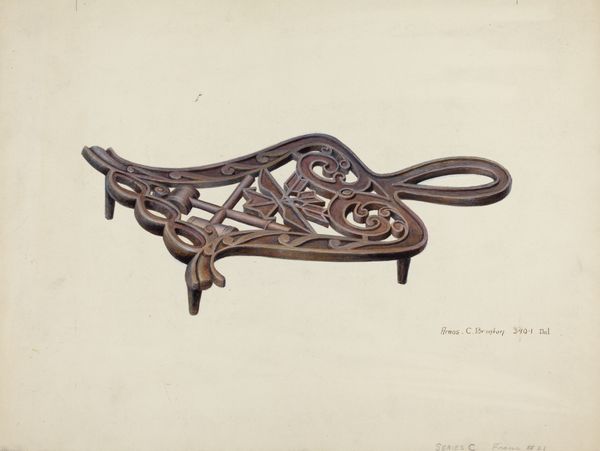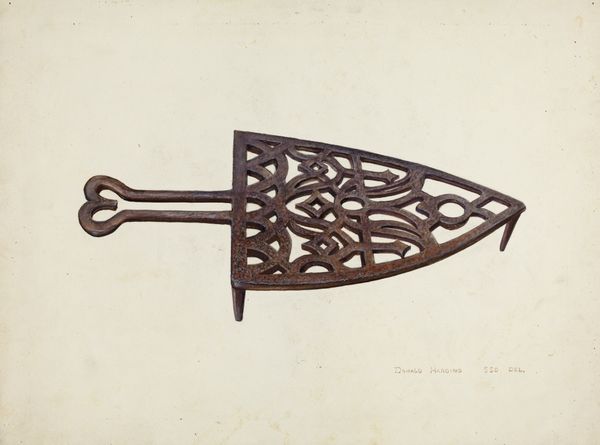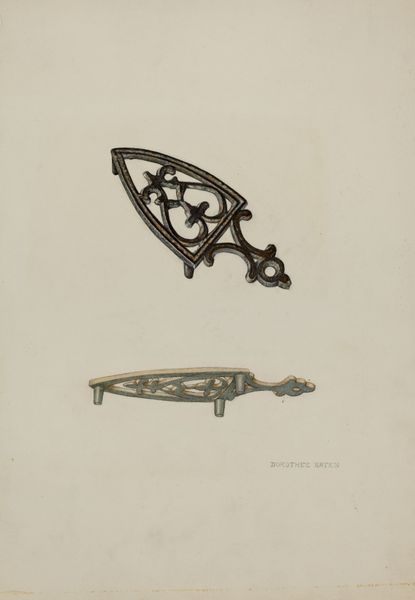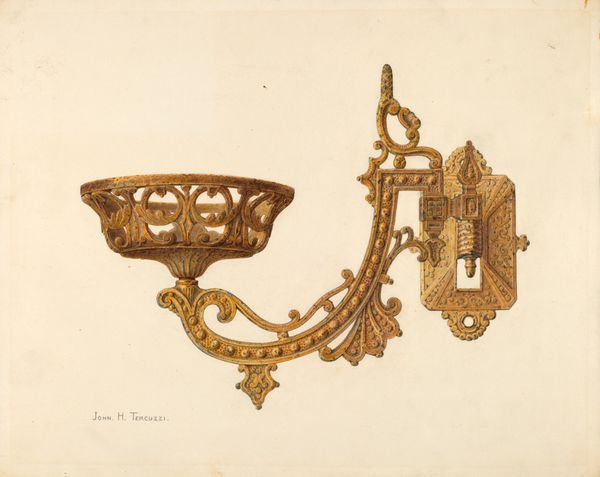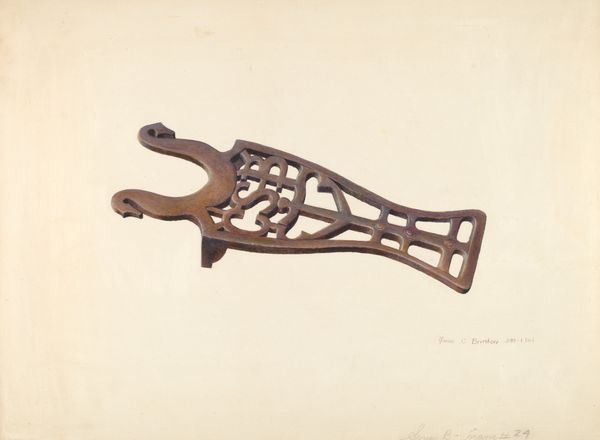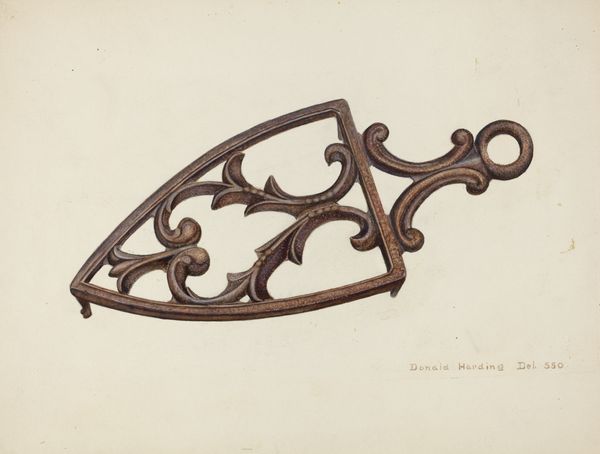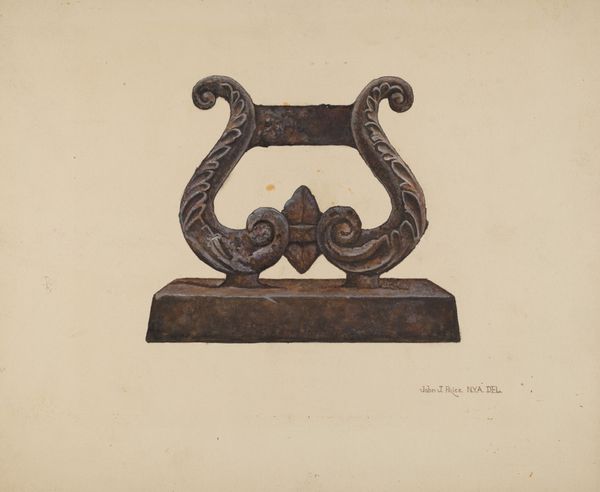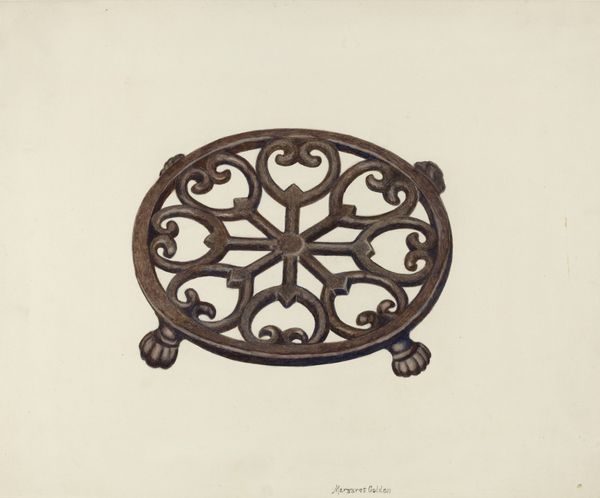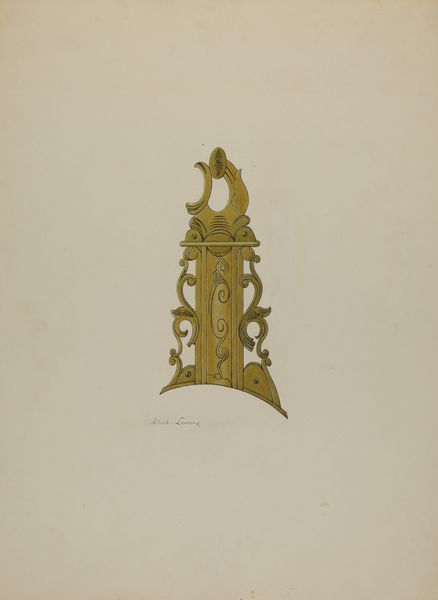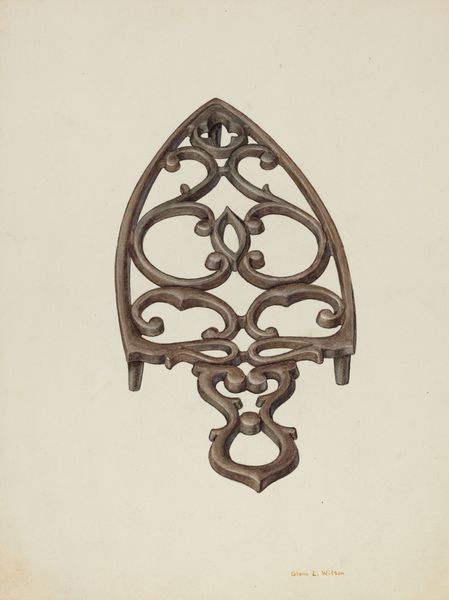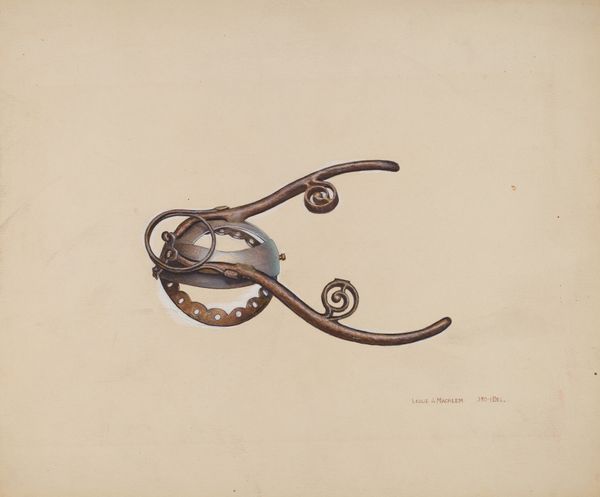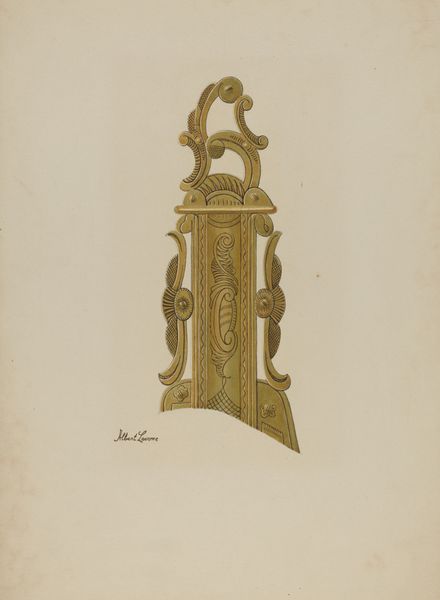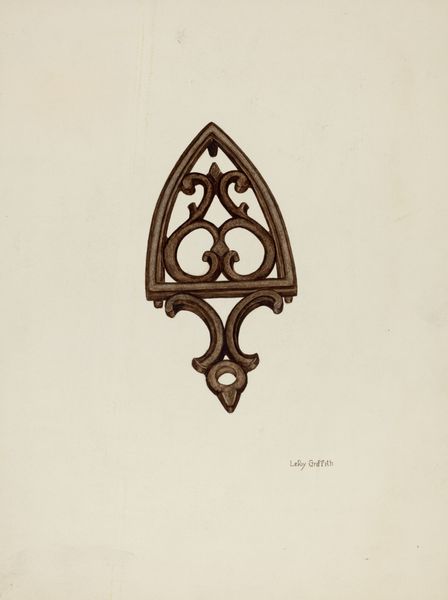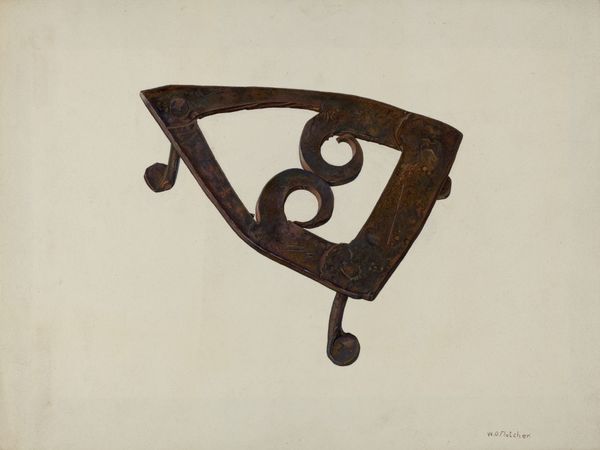
Dimensions: overall: 22.8 x 28.1 cm (9 x 11 1/16 in.)
Copyright: National Gallery of Art: CC0 1.0
Editor: We're looking at "Flat Iron Stand," a pencil drawing on metal, created around 1939 by Amos C. Brinton. It depicts exactly that: a stand for a flat iron. I'm struck by the contrast between the mundane subject matter and the elaborate, almost baroque, design. What catches your eye about this piece? Curator: Indeed, the formalism is quite intriguing. Observe how Brinton orchestrates a visual interplay between line, form, and negative space. The elaborate metalwork is rendered meticulously, creating a captivating texture through the cross-hatching technique in the pencil. Editor: Yes, it almost feels like he’s trying to elevate this everyday object. Curator: Precisely. The flowing lines of the metalwork create a sense of movement, almost contradicting the static nature of the subject. Note how the artist uses light and shadow to define the form. It gives the image a sculptural quality, don't you think? Editor: Absolutely. The delicate shading brings a three-dimensionality to the drawing, so it doesn't feel flat at all. It's incredibly detailed. What would you say is the focal point? Curator: Consider the centrally placed, stylized floral motifs. They serve to anchor the eye, directing the visual flow throughout the entire composition. The artist utilizes visual rhetoric to imbue function with form. The materiality itself contributes significantly to our interpretation. Editor: It’s fascinating how close observation unlocks all these intricate design elements. I had initially seen it as just a drawing, but I am leaving this discussion with a renewed appreciation for the craft of formal composition. Curator: Precisely. It highlights the visual language we sometimes fail to recognize within familiar objects.
Comments
No comments
Be the first to comment and join the conversation on the ultimate creative platform.
